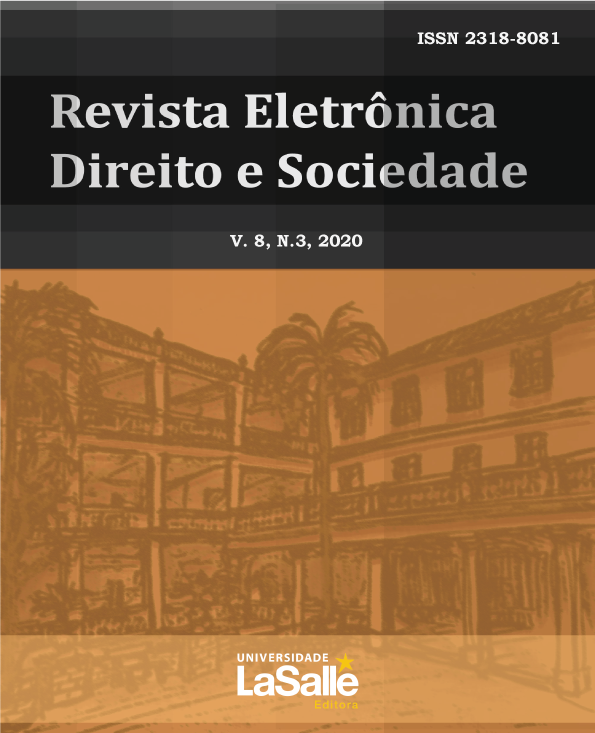Praxis-law as the concept of a contemporary civil hermeneutics
DOI:
https://doi.org/10.18316/redes.v8i3.6702Keywords:
Contemporaneity, Legal Interpretation, Practical Reasoning, Realization of Civil Law.Abstract
This paper promotes a critical analysis of the traditional concept of civil law and its application. It proposes a (re) thinking of the
modern paradigm, which is inappropriate, has simplifying pre-designed templates that radiate the ultimate sense of law without establishing an interaction with the social, fluid, dynamic and complex context. In effect, it seeks to reflect on civil law from a perspective that has as a prius the concrete problem and as the point of arrival the solution to the problem. This is because contemporary society is not closed in the methodological rigor of “legal science” nor does it cling to concepts. It does not fit within a linear succession of understanding of the (symbolic) reality, neither does it model itself within textual precepts signifying the subject of law but seeks to misalign, make and remake itself in every phase of the historical and cultural process. Thus, this study proposes a hermeneutics that includes greater emphasis on the particular case in the interpretive process in the face of the norm as the ultimate and primary element of the sense of law.
Downloads
Published
Issue
Section
License
Authors who submit their manuscripts for publication in the “REDES” Magazine agree to the following terms:
The authors claim to be aware that they retain copyright by giving “REDES” the right to publish.
The authors declare to be aware that the work submitted will be licensed under the Creative Commons Non-Commercial Attribution License which allows article sharing with acknowledgment of authorship and publication in this journal.
The authors declare to be aware that by virtue of the articles published in this journal have free public access.
The authors declare, under the penalty of the law, that the text is unpublished and original and that they are aware that plagiarism has been identified, plagiarized authors will be informed - willingly, to take legal action in the civil and criminal sphere - and, plagiarists will have their access to the magazine blocked.
The authors state that - in case of co-authoring - all contributed significantly to the research.
Authors are obliged to provide retractions and (or) corrections of errors in case of detection.
The authors are obliged not to publish the text submitted to “REDES” in another electronic journal (or not).
The Electronic Journal Law and Society - REDES - is licensed under a Creative Commons License. Attribution-NonCommercial 4.0 International.Based on work available at "http://revistas.unilasalle.edu.br/index.php/redes/about/submissions#copyrightNotice".
Permissions in addition to those granted under this license may be available at http://creativecommons.org/.

